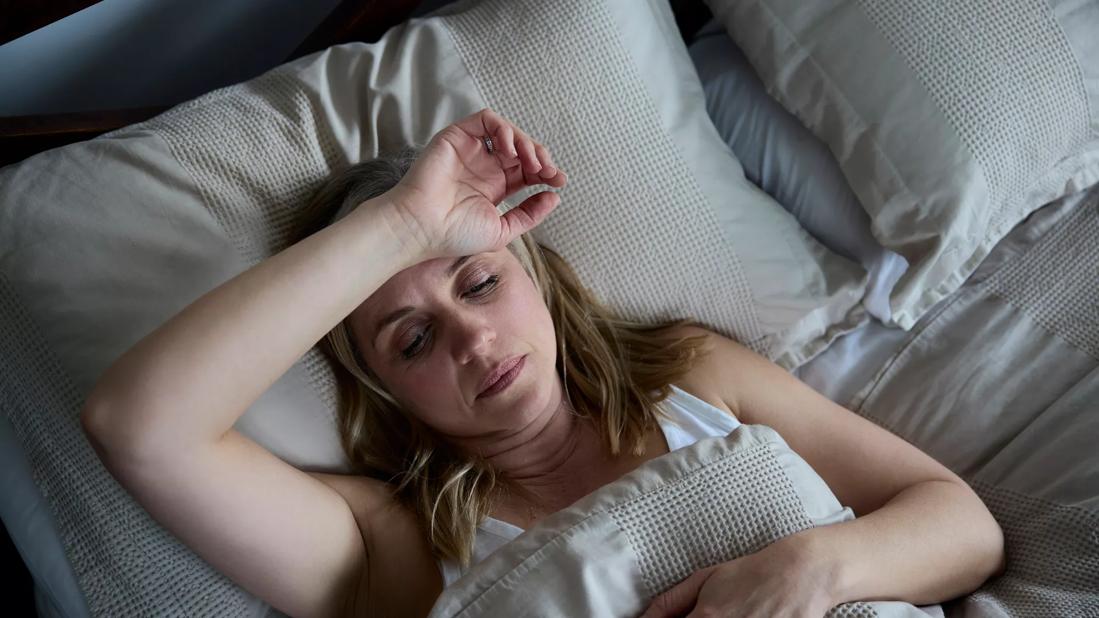It’s a natural part of aging, starting with perimenopause and eventually leading into postmenopause

Menopause is a natural part of aging that marks the end of the female reproductive years — but many people don’t know what to expect until they’re in the midst of it. Did you know, for example, that you could experience symptoms up to a decade before menopause actually begins?
Advertisement
Cleveland Clinic is a non-profit academic medical center. Advertising on our site helps support our mission. We do not endorse non-Cleveland Clinic products or services. Policy
Menopause specialist Pelin Batur, MD, walks us through the stages of menopause and what you may be able to expect during each one.
The menopause process is all about hormones. Your body begins to produce less of the hormone called estrogen, which regulates your menstrual cycle, and your ovaries start running low on eggs. But it doesn’t happen all at once.
Here’s a quick overview of the three stages of menopause:
Dr. Batur explains each stage in greater detail, including the symptoms you might experience and how to find relief.
Advertisement
You can think about perimenopause as the runway to the big event. It can start as early as a decade before menopause, though the average amount of time spent in perimenopause is four years.
During this time, your body is, little by little, winding down its natural ovulation process. The most common sign of perimenopause is irregular periods and menstrual cycles.
“As your estrogen levels start to decrease, your periods and menstrual cycles may start getting a little wonky — sometimes, closer together, sometimes skipping cycles,” Dr. Batur explains. “You may also have some of the typical menopausal symptoms.”
Not everyone experiences noticeable symptoms during perimenopause, but they can include:
There are two stages to perimenopause — early menopause transition and late menopause transition — though they’re not always cut-and-dry and distinguishable from one another.
This first stage of perimenopause is the very beginning — when your body is just starting to experience hormonal changes. During this time, your periods and menstrual cycles are still coming regularly, but you may notice other symptoms:
“This is a natural phase of life, so if your symptoms are mild, you may be able to make do with lifestyle changes like getting more sleep and upping your cardio,” Dr. Batur says. “But if they’re really bothersome, speak to your healthcare provider, even if you’re still having regular menstrual cycles.”
The late menopause transition is when you’re getting a little closer to menopause. You’re more likely to start experiencing irregular periods and menstrual cycles.
“During perimenopause, you’re not ovulating as regularly,” Dr. Batur says. “You have up-and-down levels of estrogen, and you may not make progesterone as consistently, so you may skip a menstrual cycle and then have heavy bleeding during the next period because your uterine lining has thickened up from the impact of the estrogen.”
Advertisement
“Eventually, as you get closer and closer to menopause, you start skipping periods for months at a time,” she continues.
If this happens, bring it up with your healthcare provider — especially if you’re in your early 40s or younger, which can be a sign of premature menopause or a condition called primary ovarian insufficiency.
When you’ve gone a full 12 months without having your period, you’ve entered menopause (assuming you haven’t stopped bleeding because of another medical condition or a medication).
“That typically happens around age 52,” Dr. Batur shares, “and then, you live the rest of your life in menopause, where you’re no longer ovulating and you no longer have the ability to bear children.”
Menopause symptoms typically last for seven to 10 years (though your timeframe may vary), and they can range from mild to severe. If you’re in the latter camp, experiencing bothersome symptoms that you just can’t shake, don’t feel like you have to soldier on in silence.
“Just saying, ‘grin and bear it’ and ‘eat healthier and lose some weight’ doesn’t cut it for people who are really suffering during this time in their lives,” Dr. Batur states. “Your healthcare provider will also want to make sure that your symptoms aren’t related to other medical conditions.”
Advertisement
Once you enter menopause, you’re “in menopause” for the rest of your life; this is also called the postmenopause stage.
But now, you’re at a higher risk for other health concerns. A decrease in estrogen is a risk factor in conditions like:
The older you get, the more tuned in your healthcare provider should be to menopause’s impact on your health. But if they’re not bringing it up, you definitely should — even if you’re feeling fine, but especially if you’re not.
The stages of menopause shouldn’t make you feel miserable. If your symptoms are especially bothersome and having an impact on your quality of life, it’s time to ask for help.
Advertisement
“Tell your Ob/Gyn or your primary care doctor, ‘Hey listen, I think my hormones are going haywire,’” Dr. Batur advises. They can talk you through the options, which may include any of the following (or a combination of them):
Just remember: There’s no quick fix for the symptoms of menopause. If you raise concerns about them during an annual visit, your healthcare provider may ask you to come back for another appointment so the two of you can go more in-depth about what you’re experiencing — and that’s OK.
“This is a very individual thing, and it can be very complicated, especially depending on your medical history,” Dr. Batur says. “Schedule another appointment, if you need it, and make sure your concerns are being addressed during dedicated time with your provider.”

Sign up for our Health Essentials emails for expert guidance on nutrition, fitness, sleep, skin care and more.
Learn more about our editorial process.
Advertisement

Estrogen loss contributes to bone loss, which significantly raises your risk of osteopenia and osteoporosis

Making certain changes to your diet, sleep habits and even your wardrobe may help lessen the impact of menopause symptoms

A women’s health specialist explains those cold flashes that come on quickly

Changing hormone levels can bring issues like brittle nails, indigestion, dry skin and new allergies (to name a few!)

The choices you make at mealtime could reduce hot flashes or make them worse

If you’ve noticed changes in your mood and mental health while going through menopause, you’re not alone

Missed periods, heavy periods, painful sex and frequent hot flashes are just a few symptoms worth discussing with your provider

At-home tests measure FSH levels in urine, but they can’t actually diagnose menopause

Even small moments of time outdoors can help reduce stress, boost mood and restore a sense of calm

A correct prescription helps your eyes see clearly — but as natural changes occur, you may need stronger or different eyeglasses

Both are medical emergencies, but they are very distinct events with different causes